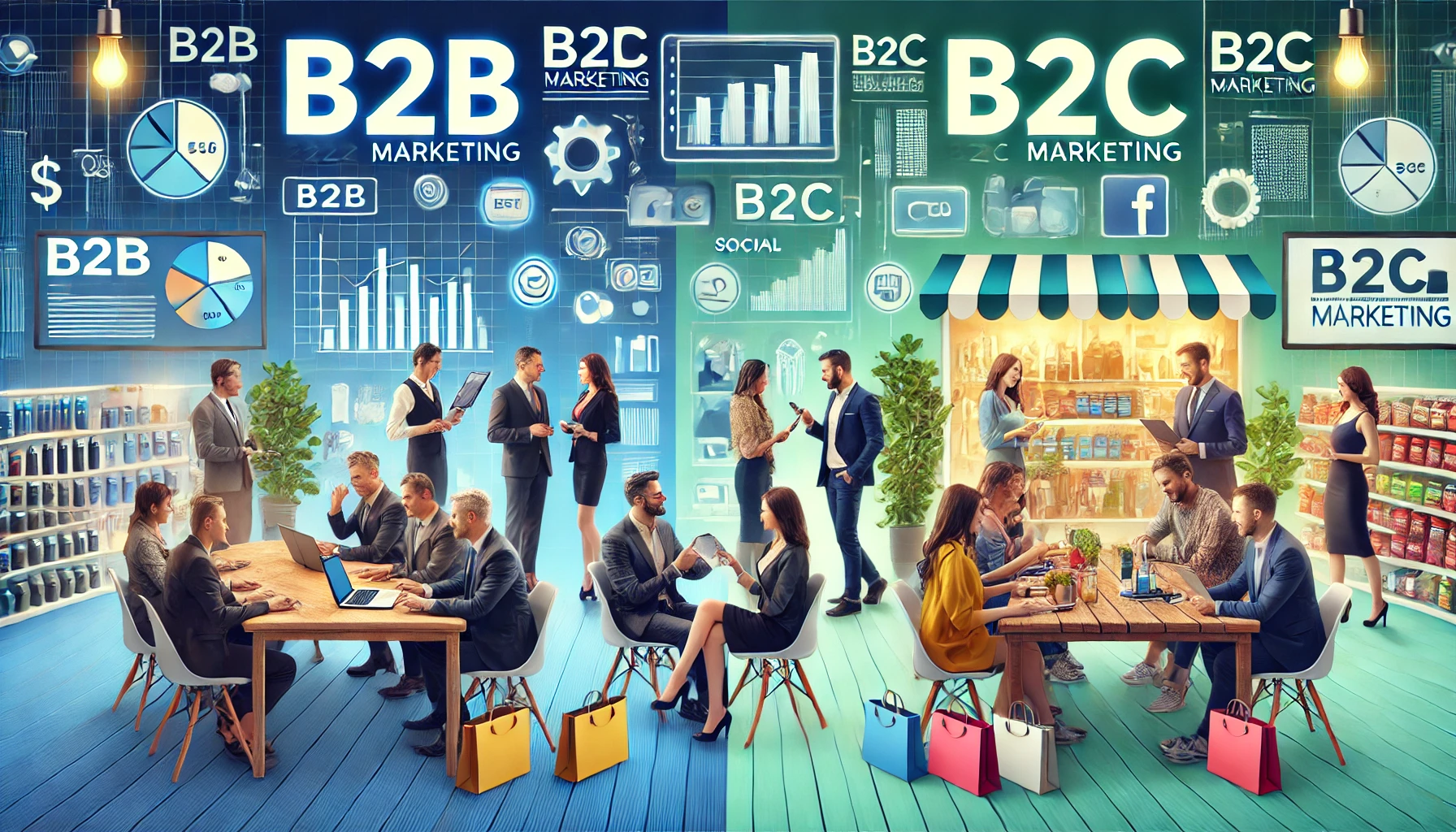B2B and B2C Marketing: Key Differences and Strategies 🚀
Introduction
Marketing is a crucial aspect of any business, but the approach varies significantly depending on whether a company is targeting businesses (B2B - Business to Business) or individual consumers (B2C - Business to Consumer). Understanding these differences is essential for crafting effective marketing strategies. 🎯
What is B2B Marketing? 🏢
B2B marketing focuses on selling products or services to other businesses. This type of marketing involves long-term relationships, logical decision-making, and value-driven sales processes. 💼
Key Characteristics of B2B Marketing:
🎯 Target Audience: Businesses, corporations, wholesalers, and decision-makers.
📊 Decision-Making Process: Rational and data-driven, involving multiple stakeholders.
⏳ Sales Cycle: Longer, involving negotiations and contracts.
🤝 Marketing Approach: Relationship-building through networking, content marketing, and direct outreach.
🔍 Examples: SaaS companies, industrial equipment providers, and professional services like consulting firms.
B2B Marketing Strategies:
📖 Content Marketing: Whitepapers, case studies, and webinars provide valuable insights to potential clients.
🔍 SEO & SEM: Optimized websites and Google Ads help businesses discover relevant services.
📩 Email Marketing: Personalized email campaigns nurture long-term relationships.
💼 LinkedIn & Professional Networking: Focus on platforms where decision-makers engage.
🎯 Account-Based Marketing (ABM): Targeted campaigns for high-value clients.
What is B2C Marketing? 🛍️
B2C marketing focuses on selling directly to individual consumers. It is often emotional, immediate, and driven by brand recognition and competitive pricing. 🏷️
Key Characteristics of B2C Marketing:
👥 Target Audience: Individual consumers, shoppers, and end-users.
❤️ Decision-Making Process: Emotion-driven, often impulsive.
⚡ Sales Cycle: Short, involving immediate purchase decisions.
📢 Marketing Approach: Focus on brand awareness, social media, and advertising.
🎁 Examples: Retail stores, e-commerce websites, restaurants, and entertainment platforms.
B2C Marketing Strategies:
📱 Social Media Marketing: Engaging content on Facebook, Instagram, and TikTok.
🌟 Influencer Marketing: Partnering with influencers to promote products.
📧 Email & SMS Campaigns: Personalized offers and discounts.
🔎 SEO & PPC Advertising: Driving traffic through Google Ads and organic searches.
🎫 Loyalty Programs: Discounts, cashback, and referral programs to retain customers.
Key Differences Between B2B and B2C Marketing
Key Differences Between B2B and B2C Marketing
B2B (Business-to-Business) and B2C (Business-to-Consumer) marketing have distinct approaches based on their target audience and sales process. 🎯 In B2B marketing, businesses sell products or services to other companies, focusing on logical decision-making, extensive research, and long-term relationships. This involves a longer sales cycle ⏳ with strategic marketing through LinkedIn, emails, and webinars 📢 to educate and engage decision-makers. The content is more informative and detailed, aimed at providing value and solving business problems. 📖
On the other hand, B2C marketing caters to individual consumers, where buying decisions are often emotional and impulsive 💡. The sales cycle is shorter and transactional, emphasizing brand appeal and instant conversions. 🚀 Popular marketing channels include social media, influencer collaborations, and ads, making content engaging, fun, and visually appealing. 🎨 Companies must focus on creating captivating and relatable experiences to attract and retain customers in this highly competitive space. 🛍️
Conclusion 🎯
While B2B and B2C marketing share common principles, the strategies used must align with the buying behavior, decision-making process, and communication preferences of each target audience. Businesses must tailor their marketing approach to effectively reach and convert their desired customers. 💡
By understanding the nuances between B2B and B2C marketing, companies can create more effective campaigns, improve engagement, and drive long-term success. 🚀📈







Comments (0)